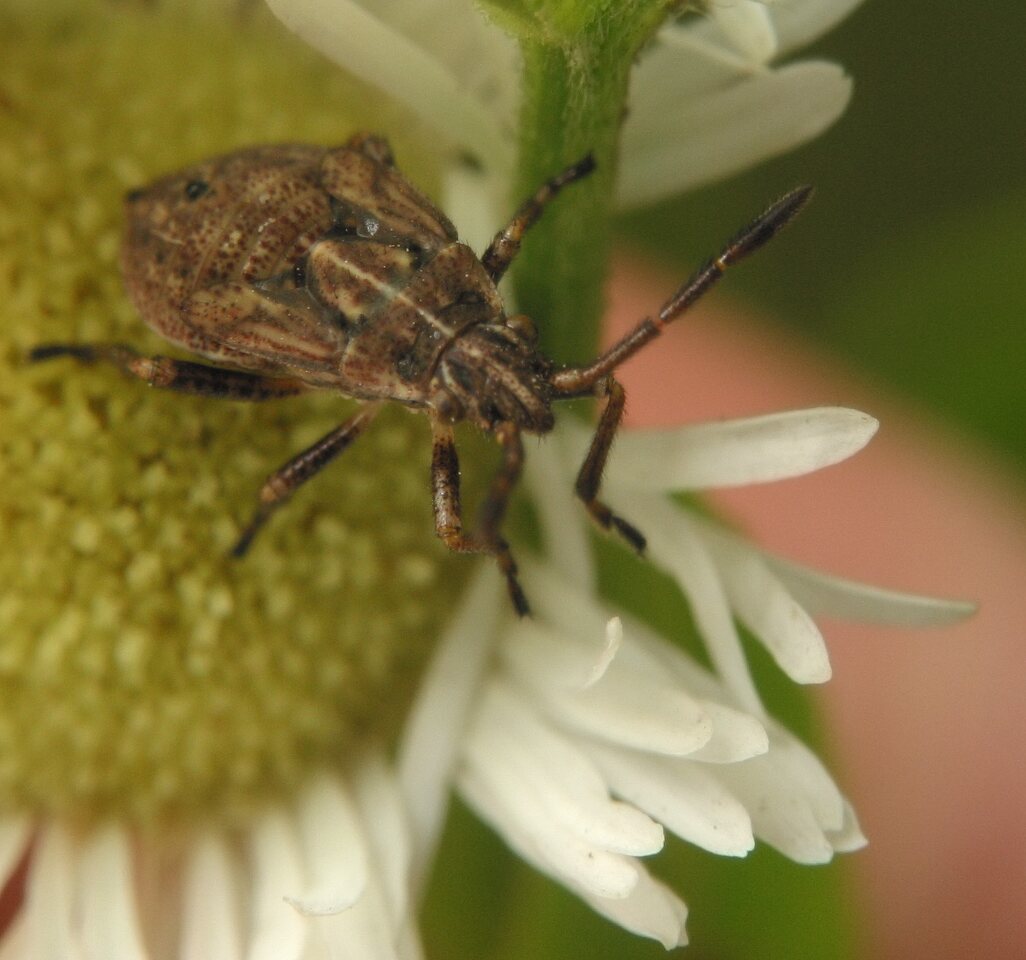255/261

Stictopleurus punctatonervosus nymph · ryškiapilvė kampuotblakė, nimfa
on Erigeron annuus - ant vienmetės šiušelės
- banded rhopalid
- Punktierte Glasflügelwanze
- Kaakonkoukerolude
- ryškiapilvė kampuotblakė
- Grijze glasvleugelwants
- wikipedia.org/wiki/Stictopleurus_punctatonervosus
- naturespot.org.uk/species/stictopleurus-punctatonervosus
- britishbugs.org.uk/heteroptera/Rhopalidae/s_punctatonervosus.html
Stictopleurus punctatonervosus can reach a length of 6.5–9 mm. These bugs have a regularly punctuated pronotum, a banded connexivum and a rounded tip of the scutellum. The body is grey-brown to black, while the abdomen is often greenish. It can be distinguished from the closely related S. abutilon by the presence of two half-circle marks on the anterior margin of pronotum (as opposed to full circles in S. abutilon).
Adults can be found all year. Females lay their eggs in the spring. New generation is complete by August. The species overwinters as imago. These bugs feed on various Asteraceae species.
‥
0 comments
Add a comment
Comments